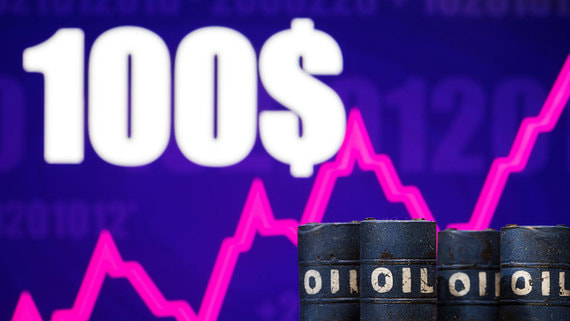EC proposes price ceiling structure for oil products from Russia
[ad_1]

The European Commission (EC) has proposed a structure for marginal prices for oil products from Russia, RIA Novosti reported on January 27, 2023, citing an EC representative. This measure is now, according to the interlocutor of the agency, being agreed with partners in the G7 (includes the UK, Germany, Italy, Canada, the US, France and Japan), he said.
This was confirmed by US Treasury Secretary Janet Yellen during her visit to South Africa on January 27. “I won’t go into details. We are discussing with all our partners – the G7+ coalition and the European community – what is the appropriate price cap level,” she said.
G7 on September 2, 2022 announced the decision to limit the prices of oil and oil products from Russia. The EU countries, Australia, and others have joined such sanctions. Restrictions on prices for oil and oil products are introduced simultaneously with the EU embargo on their supplies by sea. On December 5, 2022, the $60/bbl oil price ceiling came into effect, and the oil products price ceiling is due to come into effect on February 5, 2023.
The parties agreed to introduce two price limits – for oil products that are sold at a premium to Brent (for example, diesel), and for those that are sold at a discount (fuel oil). Restriction levels have not yet been called. Bloomberg sources reported on January 26, 2023 that the EU is considering limits of $100/bbl. for diesel (about $730/t) and $45/bbl. for fuel oil (about $330/t), but the figures may still change.
Earlier, Vedomosti prepared a consensus forecast on oil product price caps, according to which the ceiling for more expensive fuel should be $650/t, and for cheaper fuel $350/t (see the issue of January 18, 2023). Some analysts also called the range for limiting the cost of diesel from $700 to $800/ton.
After the strengthening of anti-Russian sanctions in 2022, Russian oil companies had to hastily redirect supplies of oil and oil products from Europe to Asia. At the same time, Russian oil is in the greatest demand in Asia, which is now traded at a discount to the benchmark Brent. Finding new buyers for Russian oil products is more difficult: India and China, as the largest buyers of oil from the Russian Federation, have large oil refining capacities.
If Asian buyers prefer to import oil from Russia, then European countries, on the eve of the embargo, increased the supply of Russian oil products in order to create fuel reserves. According to the International Energy Agency (IEA), in December 2022, diesel exports from Russia reached a multi-year high and amounted to 1.2 million barrels per day (Vedomosti wrote about this on January 18, 2023).
At the same time, deliveries of diesel fuel to the EU have become a record for 10 months and amounted to 720,000 barrels per day. Gasoline exports were also at their highest in December last year, at 270,000 barrels per day.
According to Andrey Maslov, an analyst at FG Finam, the price ceilings cited by Bloomberg sources “do not look critical” for Russia, but the $45/bbl level is. can “put pressure” on Russian exports. Asset manager “BCS The world of investment” Vitaly Gromadin adds that there are not enough tankers on the market to redirect oil products from Europe to Asia, so there may also be an interruption in supplies and a shortage of fuel on the world market.
Against this background, oil production in Russia in 2023 may decrease by 5-7% in annual terms, Maslov explains. In this case, according to Vedomosti’s calculations, at the end of the year it will amount to 498-508 million tons. The fact that Russia is ready to reduce production by 5-6% already at the beginning of 2023, or by 500,000–700,000 barrels ./day to comply with the presidential decree banning the supply of oil and petroleum products to those countries that have joined the ceiling, said Deputy Prime Minister Alexander Novak, who oversees the fuel and energy complex, at the end of 2022 (Vedomosti wrote about it on December 23).
Gromadin predicts a 10-20% decline in oil production (to 218-245 million tons – Vedomosti). Novak previously also told TASS that in the event of problems with the sale of petroleum products, oil refining “to some extent can be replaced by additional volumes of oil exports.”
[ad_2]
Source link





